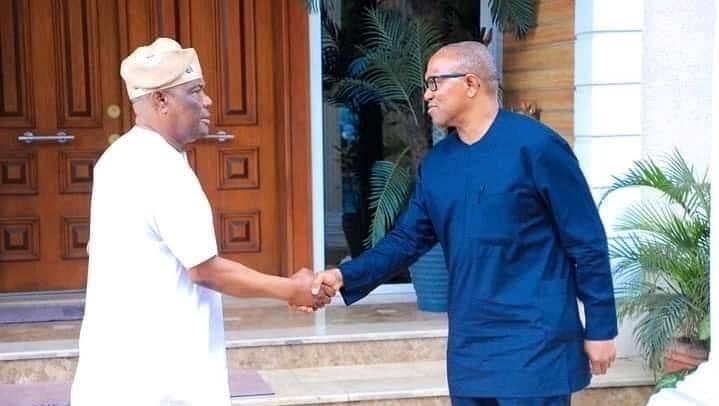In a recent address, Nyesom Wike, the Minister of the Federal Capital Territory, reflected on the political maneuvers and lobbying attempts he experienced prior to the 2023 presidential elections in Nigeria. Notably, he disclosed extensive efforts from the team of Peter Obi, the Labour Party’s presidential candidate, to gain his support for Obi’s bid for office. Despite these persistent appeals, Wike opted not only to withhold his endorsement from Obi but also from Atiku Abubakar, the candidate from the Peoples Democratic Party (PDP). Instead, he publicly announced his allegiance to Bola Tinubu, the candidate representing the All Progressives Congress (APC), shedding light on his reasons for this choice during a luncheon held in Port Harcourt.
Wike expressed unwavering confidence in his decision to support Tinubu, declaring he harbors no regrets; in fact, he firmly believes that certain factions within the PDP view him as detrimental to their aspirations. He highlighted the criticism he faces from both Obi’s and Atiku’s groups, suggesting these entities blame him for their failure to secure the presidential seat. Wike defended his stance against their claims by emphasizing that his motives stemmed from a desire for equity and fairness in the political landscape, positioning himself as a figure who stood against perceived injustices rather than as a mere obstacle for his rivals.
Elaborating on the lobbying efforts from Obi’s camp, Wike recounted their attempts to coax him into supporting Obi’s campaign. He recounted his firm rejection of these overtures, reinforcing his belief that such a path would not resonate with the interests of Rivers State. Wike characterized the discord among the various political factions, noting their internal battles while positioning himself as a steadfast opponent of their agendas. He conveyed a sense of foresight regarding political alliances, suggesting that he remained undeterred by the conspiracies hatched against him by both the PDP and APC members.
Wike’s remarks also included reflections on the potential 2027 presidential race and his awareness of individuals within the PDP who are plotting against him, believing that these machinations are motivated by their ambition for party leadership. He conveyed confidence in his political acumen, asserting that those who conspire against him for their personal political gains will ultimately falter. Through this assertion, Wike sent a clear message about the fragility of political alliances and the consequences of underestimating his resolve.
In addressing the interim leadership of the PDP, specifically targeting Umar Damagum, Wike clarified his position regarding their relationship, which he described as lacking support. He argued that the focus ought to be on ensuring stability within the party, specifically advocating for Damagum to complete the term of his predecessor, Iyorcha Ayu. Wike’s skepticism towards Damagum demonstrated a cautious approach to intra-party politics, where trust is paramount yet often elusive. His commentary exposed fractures within the PDP, hinting at greater challenges ahead as individuals consider their future ambitions.
Ultimately, Wike’s reflections on the political atmosphere surrounding the 2023 elections reveal not only the personal stakes involved but also the broader dynamics of loyalty, ambition, and intra-party conflicts. By articulating his views candidly, he underscored the complex interplay of influences at play in Nigerian politics, characterized by lobbying, strategic alliances, and the ongoing struggle for power. His stance illuminates the broader context of political gamesmanship that shapes electoral outcomes while foreshadowing the potential for continued conflict as the political landscape evolves leading into future elections.














